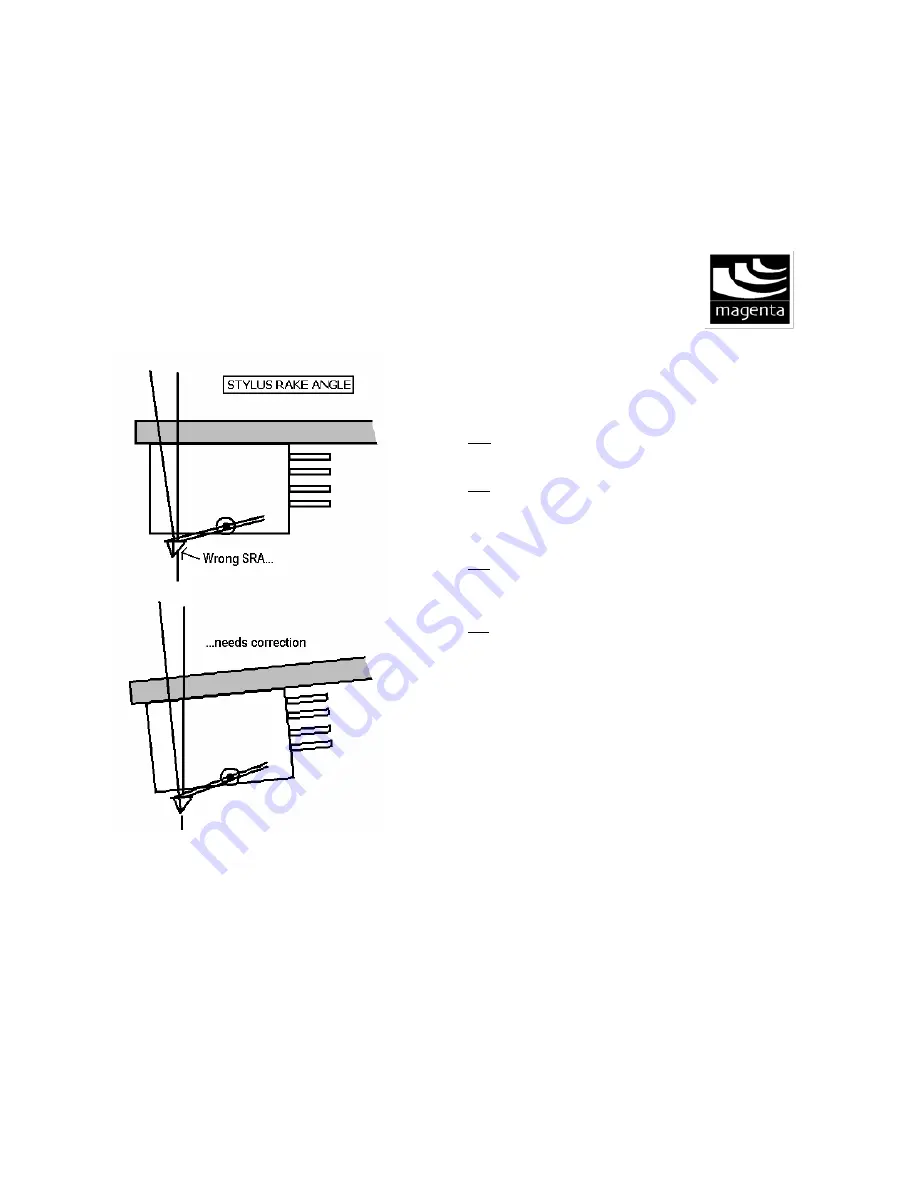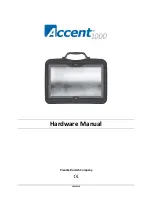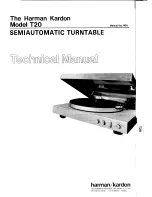
ADJUSTING THE MAGENTA TT10 TURNTABLE
The engineers explained what the
Vertical Tracking Angle
is. A
few mentioned other parameters of significance as well.
VCU
= the Vertical Cutting Angle.
It should be set exactly as
prescribed in the manual of the cutting lathe.
CRA = the Cutter Rake Angle.
This is the angle of the cutter
diamond in relation to the cutter head. This angle should actually
be the same as the VCA, the Vertical Cutting Angle. If it is not,
than an engraving giving an awkward signal is the result.
VTA
= the Vertical Tracking Angle
of the diamond tip (stylus) in
the cartridge. It should be exactly the same as the Vertical Cutting
Angle.
SRA
= the Stylus Rake Angle.
This is the angle the stylus makes in
relation to the cantilever and the body of the cartridge. The SRA
should be identical to the Vertical Tracking Angle (VTA) when the
top of the cartridge is mounted parallel to the record's surface. If
the Stylus Rake Angle (SRA) is not identical to the VTA, the SRA
has to be adjusted until it reaches the correct VTA and mimics the
cutter diamond. One method to achieve this is by adjusting the
height of the arm at the pivot. The headshell will no longer be
parallel to record's surface. Another method is to put a wedge in
between cartridge and headshell. Since the engraved signal in the
record measures micrometers, it is obvious that if the SRA is
incorrect, a higher level of distortion will be heard. I











































